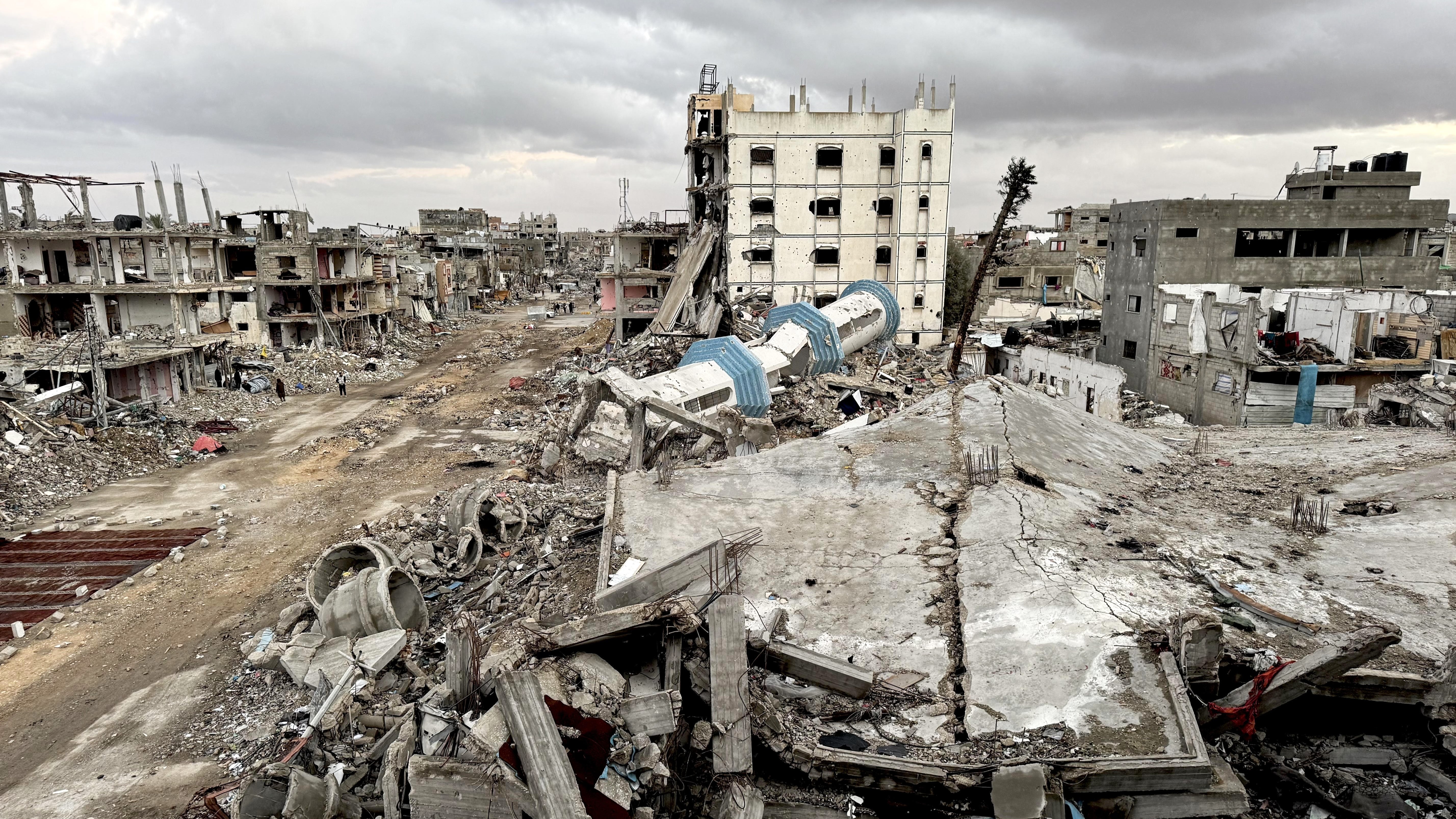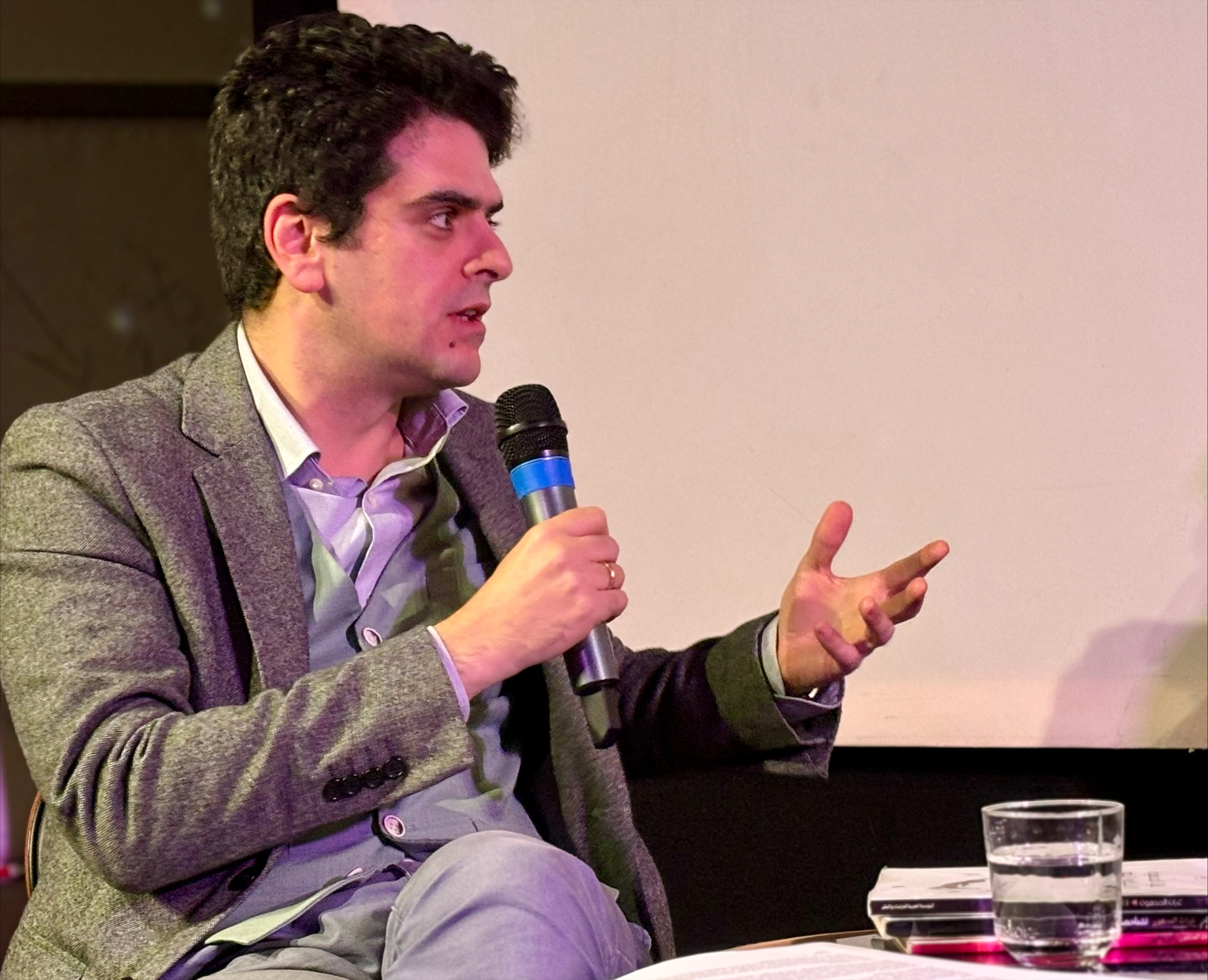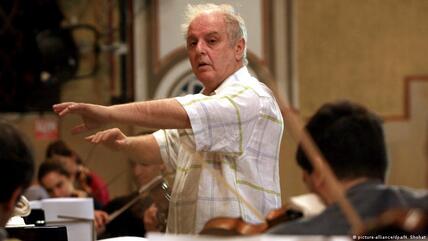"Nothing justifies genocide"

Qantara: Does your political activism have a negative influence on your music?
Michael Barenboim: You mean the quality of my playing?
You've said yourself that playing the violin takes a lot of practice. Since 7 October and the Gaza war, you have become increasingly active, writing open letters, giving press conferences and moderating discussions about Israel and Palestine.
I have actually become increasingly concerned about this in recent months. But I think the work I do outside of music is very important. Of course, I don’t want people to think, "now he’s doing politics and playing like an egg." I'm very careful to make sure I have enough time to practice and prepare.

You recently criticised the German media and called on them to live up to their responsibility as the "fourth estate". With few exceptions, the media have completely failed, you wrote. That's a harsh accusation.
Germany must stop supporting the annihilation of the Palestinians. If there is already a complete consensus on this issue in this country, and everyone in parliament holds more or less the same position, then the role of the media is all the more important.
There is a lack of critical questioning. Israel is accused of genocide at the International Court of Justice (ICJ). These things are clear. We must not support Israel with weapons. This needs to be stated much more clearly by our media representatives.
Is your goal that the German media use terms like "genocide" or "ethnic cleansing" to describe Israel's war on Gaza, or even Trump's latest expulsion fantasies?
Using the right vocabulary is important, but not enough. When genocide is imminent, we are obliged to do everything we can to prevent it. The danger of genocide was highlighted as early as 9 October 2023, when Israel's defence minister used the phrase "human animals2 and announced that the supply of water, electricity, petrol and food would be completely cut off. On 15 October, more than 800 scholars warned of potential genocide.
As a result, all signatories to the Geneva Convention were already obliged to intervene, including Germany. The purpose of the Geneva Convention is not only to prohibit genocide but also to prevent it.
Trump and Netanyahu are following a more than century-old tradition of ruling over this land without the participation or consultation of the local population, disregarding the Palestinian people's right to self-determination.

Music unites Israelis and Palestinians in Berlin
At the Barenboim-Said Academy in the German capital, young Israeli and Arab musicians study together. The Hamas attacks on Israel happened just before the start of a new semester. What has been their reaction?
An ICJ ruling in the genocide case you mentioned is still a long way off. Since January, a ceasefire has been in place. What makes you so certain that what happened in Gaza constitutes genocide?
There is a mountain of evidence that allows no other conclusion. Amnesty International, Human Rights Watch, the UN Special Commission and eminent genocide scholars, including some from Israel, all agree. You must face the truth—at some point the line is crossed.
A ceasefire—especially one that Israel breaks almost daily—does not mean that the genocide is over. We are currently seeing a combination of the destruction of food production and the withholding of aid; the destruction of hospitals and the withholding of life-saving medicines. We are also seeing the expansion of the genocide to the West Bank. The images from Jenin resemble those from Jabalia.
Genocide requires intention and this is usually difficult to prove. But in the case of Gaza, there have been hundreds of genocidal statements by Israeli politicians and military leaders. And that is just at the highest level.
What other levels do you see?
One level below, we see the actions of soldiers on the ground in Gaza, acting with impunity. "I have lifted all restrictions," said Defence Minister Gallant. And at the lowest level, we see the result: a completely devastated Gaza Strip. The health sector and the production of food have been completely wiped out.
You advocate for a complete arms embargo on Israel. Does this prospect not concern you? Israel's enemies have made it clear that they are serious about its destruction. The country has been directly attacked by Iran. Shouldn't we take this just as seriously as, for instance, Trump and Netanyahu's calls to empty Gaza of Palestinians?
The states supplying Israel with weapons must take a clear stance: end the occupation! By 19 July last year at the latest—when the ICJ ruled in another case that Israel's occupation of Palestinian territories was illegal—all the arguments were in place to impose the measure of no more arms deliveries until the ICJ's demands were met. Israel must withdraw, evacuate the settlers, and pay reparations to the Palestinians. People often claim this is impossible, but it is not—it is an obligation.
Does this argument let groups like Hamas off the hook?
Hamas doesn't get weapons from Germany.
But Hamas bears some responsibility for what happened after the 7 October massacre. More than 500 days later, it is still holding hostages.
But nothing justifies genocide. No clause in the Geneva Convention says if this or that happens, then genocide is acceptable. There is no legal or moral justification for genocide. The responsibility to prevent genocide is 100 per cent. And if we want to discuss the root causes of the conflict, we must go much further back than 7 October 2023.
You have been to Israel many times. Have you ever been to Gaza?
Once, in 2011, with my father and a group of musicians.
Under Hamas rule?
Yes, there was a brief moment when that was possible.
Unlike your father, pianist and conductor Daniel Barenboim, you don't have Israeli citizenship. Why are you so deeply involved in the Israel-Palestine conflict alongside your music?
Since I was 14, I have played in the West-Eastern Divan Orchestra, founded by my father and Edward Said, which brings together musicians from across the Middle East. The issue of Palestine and Israel has accompanied me ever since. At the Barenboim-Said Academy in Berlin, we also engage with the issue every day.
How have the orchestra and the academy been affected by 7 October and the war on Gaza?
I am impressed by how our students navigate the situation—human interaction works. At the same time, it is extremely challenging, as neutrality is not an option. In my view, there is a clear polarisation: those who uphold international law and those who discredit themselves by attempting to justify the unjustifiable.
Do you see yourself as following in your father's footsteps? Like you, he has always been political, but I can’t imagine him taking part in an official German federal press conference and accusing Germany of complicity in genocide.
There are differences. I do a lot of projects that have nothing to do with music. The press conference is one example, or the Kilmé series of talks, in which Tyme Khleifi and I offer a stage once a month to Palestinian artists and academics. My father combined almost all of his projects with music. A full-blooded musician who has been on stage since the age of seven, music is simply his medium. But that doesn't mean his projects aren't political.
© Qantara.de
